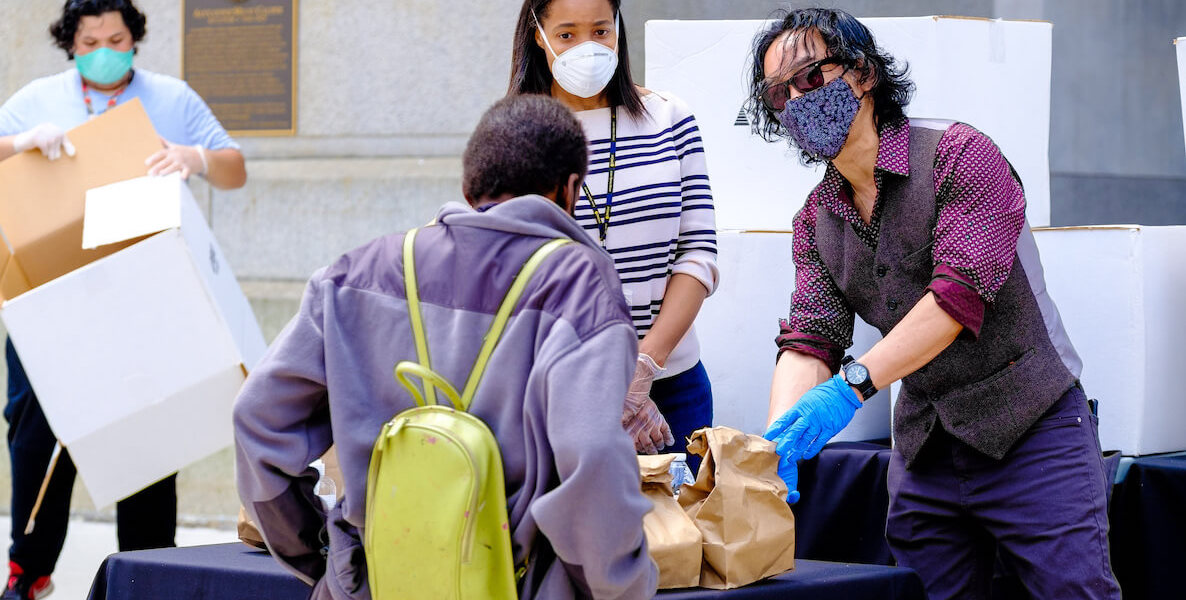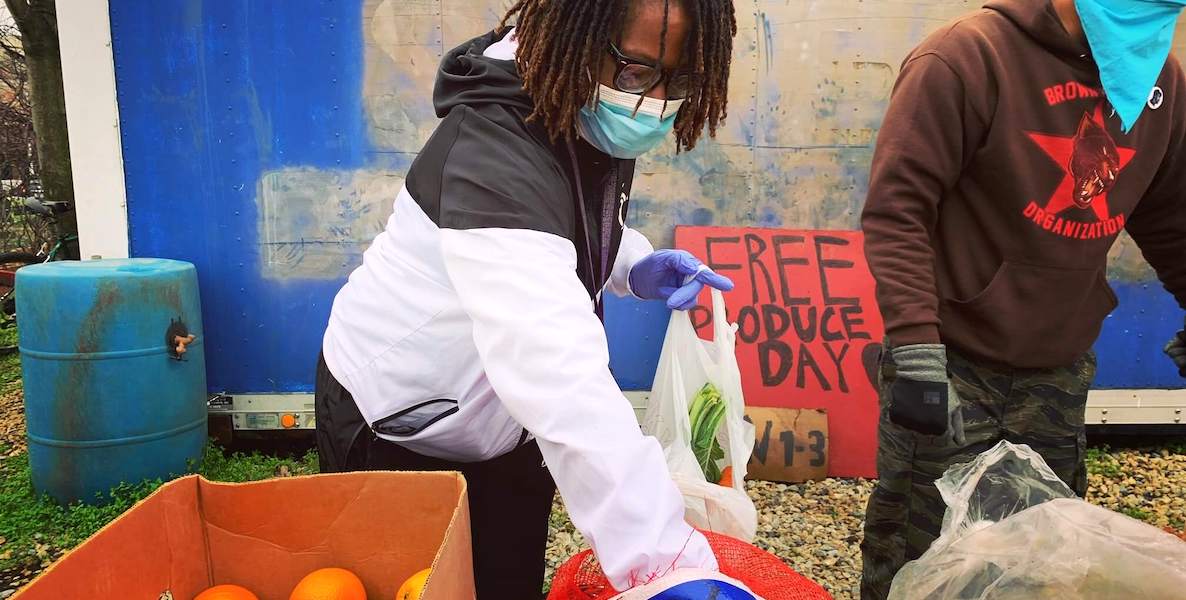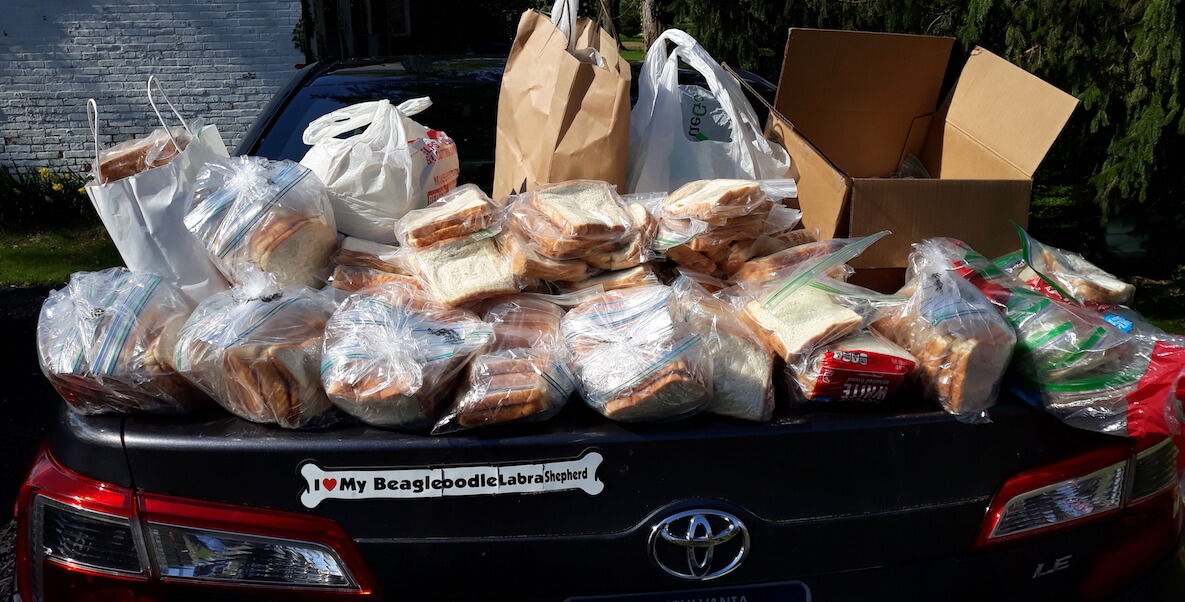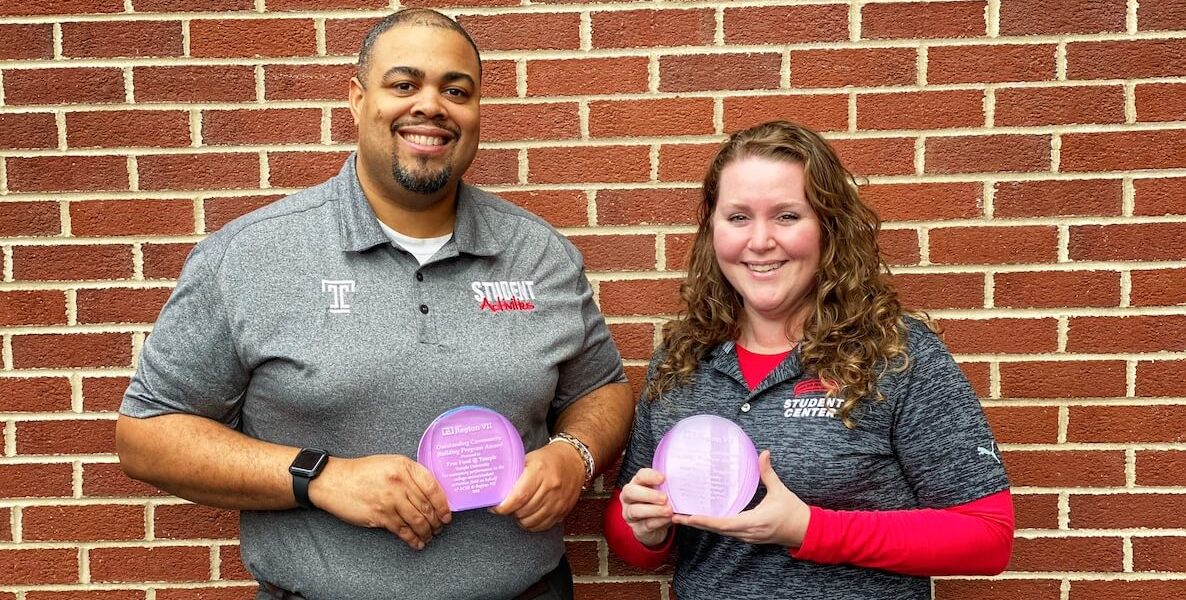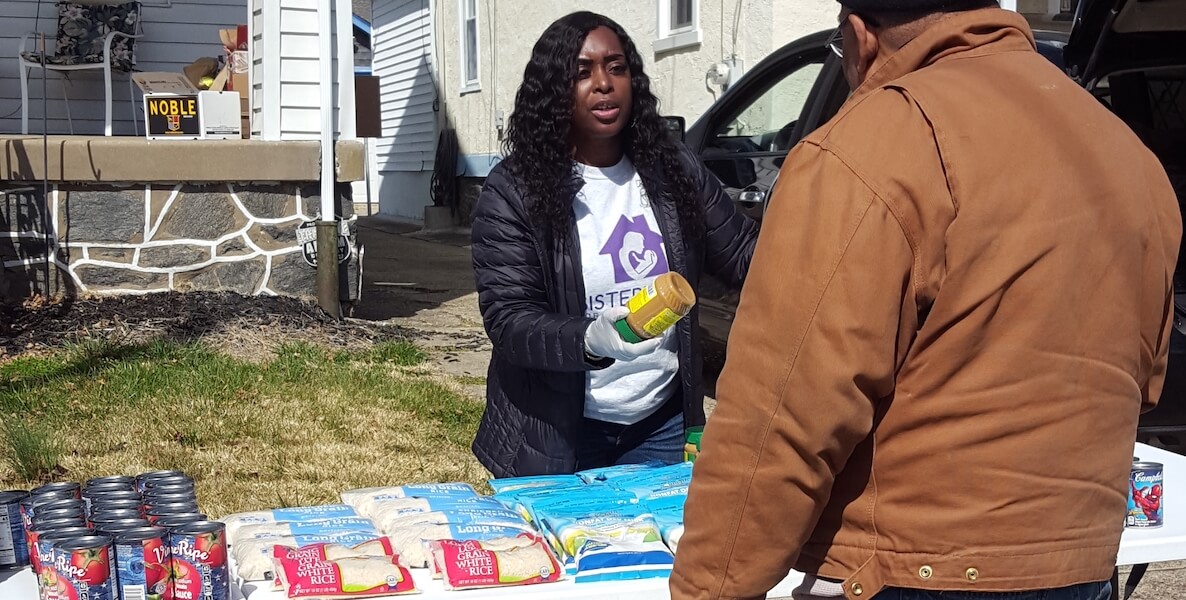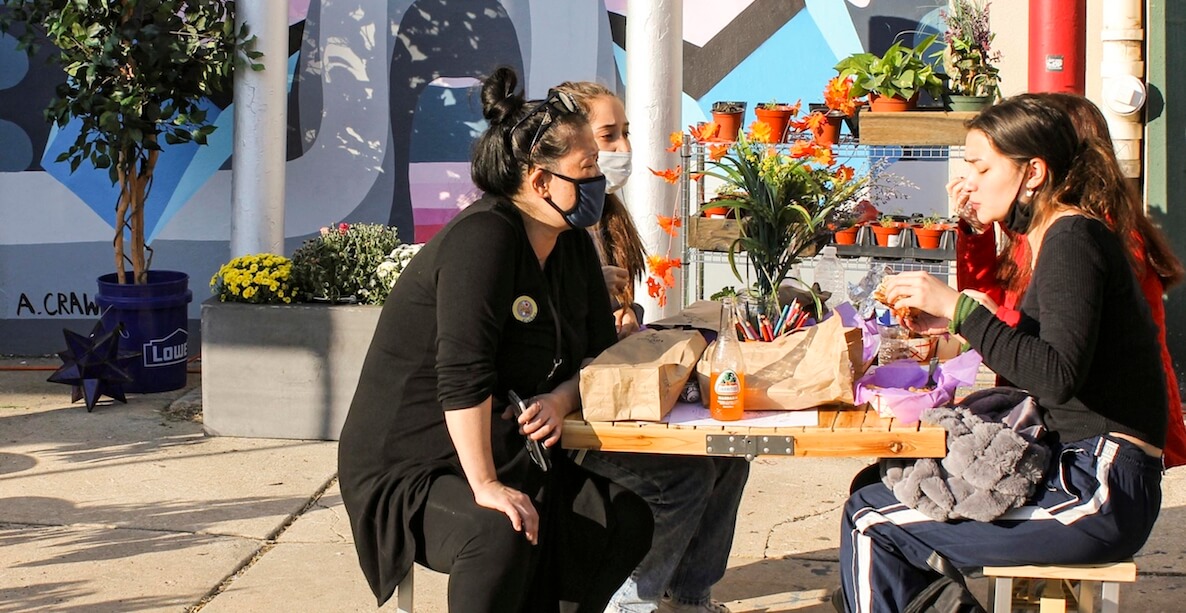As the pandemic rages on, hunger in Philadelphia continues to soar along with it.
Before Covid-19, one in five Philadelphians experienced food insecurity; during the pandemic, there’s been a 60 percent increase in demand for food, according to Philabundance. And Temple students face an even higher rate of food insecurity than the region at-large: A staggering 35 percent of students are food insecure, a figure that’s in line with national averages for public four-year colleges and universities.
“I think Philadelphians would be shocked to realize how much of a crisis food insecurity is for college students,” says Sara Goldrick-Rab, director of Temple University’s Hope Center for College, Community and Justice and a leading expert in campus hunger. “It’s a huge problem.”
That’s why it’s particularly meaningful that, in partnership with Believe in Students, a national nonprofit that helps college students get their basic needs met, and Little Giant Creative, the revered Philly-based creative agency, Hope Center created Gather Food Hall, an outdoor dining option that will be open for five weeks this fall on the 1000 block of Nectarine Street, close to Temple—and will discreetly offer $5 vouchers to Temple students who need them.
The project has been in the works for more than two years, set in motion when a private donor approached Goldrick-Rab about funding a project to reduce student food insecurity.
Goldrick-Rab was originally inspired by the model of not-for-profit restaurants in Philadelphia, like the now-closed Eat Cafe, which offered a pay-what-you-can dining option on Drexel’s campus until 2019. But when Goldrick-Rab approached Little Giant to help think through the business end of the project, they landed on the food hall.
“The food hall offers a variety of foods and vendors,” says Meegan Denenberg, co-founder of Little Giant Creative. It entices all diners. “It also allows us to develop a system where we aren’t shining a spotlight on people who need to be fed—everyone is treated the same.”
“It’s a place where people will want to come because of the delicious food, because of the really fun and amazing environment, and the entire idea of [the vouchers] is just ‘hey, we got you.’”
And—in contrast to the ritzy food hall trend—Gather harkens back to food halls’ original purpose: to offer affordable prices and good variety.
Food can be prohibitively expensive on college campuses; at Temple, the cost of an average meal is $7.50; it’s $5.20 if you purchase a 25-meal-per-week plan and $9 if you purchase a 10-meal-per-week plan.
At Gather, nine vendors offer full meals priced at $5, $7 or $10. And all Temple students have access to that $5 voucher, which they can select anonymously at check-out, to put towards their meal any time they visit.
It’s designed to be an appealing option to anyone on campus—and the general public. Students who are experiencing food insecurity aren’t made to feel marginalized, or forced to settle for unappealing or embarrassing dining options.
“What we came up with is a place that is lifestyle-driven first,” says Denenberg. “It’s a place where people will want to come because of the delicious food, because of the really fun and amazing environment, and the entire idea of [the vouchers] is just ‘hey, we got you.’”
Because of Covid-19 restrictions, the hall is entirely outdoors, and includes a socially distanced seating area, sensory garden and nine semi-permanent stalls playing host to rotating restaurants each day. The team was intentional about including a diverse array of vendors, run by folks who might not have the opportunity to expand into fancier food halls in the city. Customers will find , Mediterranean dishes from Aksum Cafe, chicken and waffles from Chiwaffles eggrolls from Rock N’ Rolls and more.
The hall is made possible largely by a private donation to Hope Center, as well as a crowdfunding campaign encouraging smaller donations; the long-term goal, however, is that it sustains itself as a business without requiring continuous donations from philanthropists. During the pilot run organizers are testing out the key variable: how much revenue they’ll get from paying customers versus how many vouchers are used.
Gather provides vendors with a small guaranteed minimum—a set amount of funding to cover a portion of staff and ingredient costs to ensure they don’t lose money during the pilot.
“There aren’t a lot of best-practices available for pay-what-you-can and nonprofit restaurant models,” Goldrick-Rab explains. Both Rooster Soup, the charitable restaurant owned and operated by CooknSolo restaurants, and Eat Cafe ultimately closed because they couldn’t make ends meet.
Both were sit-down restaurants, which Goldrick-Rab believes was part of the problem. Gather’s business model depends on high-volume and high-turnover, allowing them to serve many patrons. That model also happens to work well for Covid-era dining, where lingering for a long time is unsafe. (The pop-up was originally scheduled to open in the spring.)
“The fact is, charitable, emergency access to food, like at food pantries, is really not going to be enough,” Goldrick-Rab says. “And that’s where Gather comes in.”
“People might say ‘oh but the students are gone,’ and they’d be very wrong about that,” says Goldrick-Rab, referencing Temple’s decision to conduct about 95 percent of classes online this semester because of Covid-19. Though many students have moved out of dorms, plenty are still living in off-campus housing around the university. “I can tell you, as a professor teaching Temple students, many of them are here and they are on incredibly tight budgets.”
 Gather opened Friday, October 23, and will run until the beginning of Temple’s Thanksgiving break, for a total of about five weeks. In addition to lunch and dinner offerings Monday through Saturday, there will be weekly digital programming for the campus community, including cooking classes, presentations on food and psychology, and advice about how to save money while grocery shopping.
Gather opened Friday, October 23, and will run until the beginning of Temple’s Thanksgiving break, for a total of about five weeks. In addition to lunch and dinner offerings Monday through Saturday, there will be weekly digital programming for the campus community, including cooking classes, presentations on food and psychology, and advice about how to save money while grocery shopping.
During the pop-up, Goldrick-Rab says they are gathering data, which will be analyzed after the pop-up ends, with the goal of creating a long-term version of the hall. They also hope to create a set of guidelines that will be accessible to other universities hoping to do something similar.
“The fact is, charitable, emergency access to food, like at food pantries, is really not going to be enough,” Goldrick-Rab says. “And that’s where Gather comes in.”
This piece has been updated to reflect current Gather vendors
The Citizen is one of 20 news organizations producing Broke in Philly, a collaborative reporting project on solutions to poverty and the city’s push towards economic justice. Follow the project on Twitter @BrokeInPhilly.
![]()
RELATED
Header photo courtesy of Gather Food Hall / Little Giant Creative




